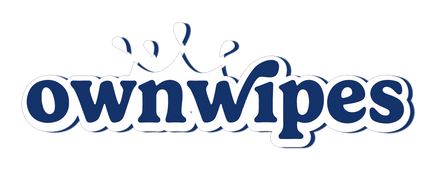Why do some packaged wet wipes remain free from mold even after being left open for an extended period?
You’ve probably tried different kinds of wet wipes. If a pack of wet wipes develops a foul smell or mold after a month of being opened, it’s generally safe to assume that it doesn’t contain much preservative. Ironically, such wet wipes might be considered safer for skin application. However, once a pack of wet wipes is opened, airborne bacteria can contaminate the wipes, and it’s recommended to use up the entire pack within a week. Otherwise the bacteria count on the wipes can exceed safe levels, leading to mold growth. It’s crucial to avoid using moldy wet wipes.
Howerever, when purchasing wet wipes, we've all encountered those that seem to last forever. Even after months, they remain as fresh as when they were first opened, showing no signs of mold or bacterial growth.
What is the reason for this?
This durability is undoubtedly due to the inclusion of a significant amount of preservatives and chemical antimicrobials that inhibit the growth of bacteria.
To cater to consumers' demand for gentle yet effective baby wipes, manufacturers often add a certain amount of chemical additives. While these additives enhance the wipes' antimicrobial properties, they can also irritate the skin, especially the delicate skin of infants. It is therefore advisable to avoid using such wipes directly on babies' skin.
The primary components found in wet wipes include:
- Water:Typically purified, distilled, or RO-purified water.
- Humectant: Commonly propylene glycol.
- Preservatives: Such as phenoxyethanol, methylparaben, and propylparaben.
- Antimicrobials: Like sodium lactate and eucalyptus extract.
- Non-ionicsurfactants: Including polyethylene glycolated hydrogenated castor oil and polyethers.
Propylene glycol serves as both a humectant and a fragrance enhancer in wet wipes. However, its frequent use on infants' delicate skin can lead to irritation, allergies, or eczema.

So the reliance on chemical methods for sterilization, preservation, and bacterial control in wet wipes can have adverse effects on skin health.
A Safer Alternative: Physical Sterilization
Is there a way to achieve effective sterilization without resorting to harsh chemicals? The answer is yes. Physical methods like high-temperature and UV sterilization can be used to create safer wet wipes.

- High-temperature Sterilization: Most bacteria are inactivated at temperatures above 60°C. This is why boiling water is a common sterilization method.

- UV Sterilization: UV light, particularly in the 240-280 nm wavelength range, is highly effective at damaging the DNA of bacteria and viruses, leading to their destruction.
Both high temperature and ultraviolet radiation are highly effective sterilization methods that leave no chemical residue. We recommend wipes that use these two sterilization methods for household use which ensures peace of mind and safety for your family.
Ownwipes: A Safer Choice
Ownwipes has developed an innovative, all-in-one automatic wipes warmer that offers a safer and more convenient way to use wet wipes for baby care.
Key features include:
- Instant Heating and Humidification: Dry wipes are instantly moistened and heated, ready for use in seconds.
- Chemical-Free:The water tank only requires pure water, eliminating the need for harmful additives.
- Dual Sterilization:The device utilizes both 80℃high-temperature and UV sterilization for maximum effectiveness.
- Versatility: Can be used on a tabletop or wall-mounted, and is even suitable for car travel.
- Large Capacity:Accommodates standard-sized wipe rolls and a large water tank for extended use.
By choosing ownwipes, you can provide your family with a safer and more hygienic wiping solution.
Potential Usage Scenarios:
-
Bedside: Convenient for nighttime diaper changes.

-
Bathroom: Ideal for general hygiene and baby care.

-
Car: Perfect for on-the-go use.

Additionally, ownwipes has developed 100% wood pulp paper wipes that can be humidified, flushable and biodegradable, ensuring a safe and natural experience for your family.

.

Leave a comment